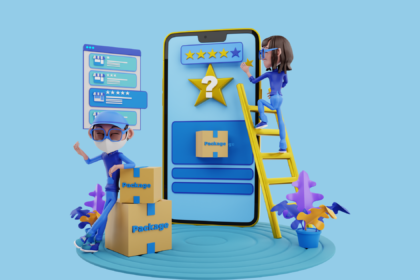Believe us, nothing kills an online shopping high faster than a “Your order is delayed” email.
The stakes are even higher for eCommerce businesses—every shipment delay is a ticking time bomb for customer frustration, chargebacks, and negative reviews.
In fact, according to a study conducted by Ipsos and Octopia, 85% of shoppers will never shop with a business again after a poor delivery experience. And if you think they’ll just be patient and wait it out, think again—40% of consumers expect their orders to arrive in two days or less.
We get it; not all shipping delays are under your control.
But their impact is!
Whether it’s supply chain bottlenecks or carrier issues, understanding the most common causes can help you anticipate problems before they snowball.
So, before you find yourself flooded with “Where’s my order?” emails, let’s break down why shipping delays happen, how they affect your business and customers, and—most importantly—what you can do about them.
Common Causes of Shipping Delays
There are many shipping delay reasons why the package is prevented from leaving the sorting facility or held by the carrier.
- Severe weather conditions
- Transportation issues like congestion, accidents, or equipment breakdowns
- Peak seasons like holidays, where huge volumes of shipments overwhelm carrier networks
- Issues within the carrier’s system, such as sorting errors, poor warehouse management, lack of coordination among the people involved, or labor shortages
- For international shipments, customs inspections and clearance processes can take a little extra time
While shipping delays might be inevitable, they sure aren’t unavoidable. With the right course of action, you can mitigate or even prevent their impact on customers and your business.
Impact of Shipping Delays on Businesses
A delayed package might seem harmless. But in reality, it’s a full-blown customer service nightmare waiting to happen. Every extra day in transit erodes your customers’ trust, and once that’s gone, good luck winning them back.
And that’s not even the only thing you’ll have to worry about. More delays can mean more refund requests, bad reviews, and chargebacks.
Long story short, yes, shipping delays can drive away customers, but they also slow down your entire business. So, how bad can it get? Let’s break it down.
1. Dissatisfied Customers and Negative Brand Reputation
Thanks to e-commerce giants like Amazon, customers expect the next day, well—scratch that—same-day deliveries. This means shipping delays are not only an inconvenience but downright unacceptable.
Research conducted by Descartes and SAPIO reveals this can lead to 23% of customers refusing to order from you again. Worse, 17% of them would actively advise friends and family to avoid your business.
You see, customers don’t care if it was a warehouse mix-up, a supply chain issue, or an overloaded courier. All they know is that their order is late, and now your brand looks unreliable. This pushes them to your competitors while you drown in negative reviews, social media complaints, and “Where’s my order?” emails.
Lost Sales and Revenue
Cart abandonment is already a major concern for eCommerce businesses, but shipping delays take it a step further.
The math is simple. If a customer sees a longer-than-expected delivery window, they’re far more likely to ditch their cart before checkout. Many will even pay more for a product elsewhere if it means faster, guaranteed shipping.
Plus, even if your delivery window is within their expectations, there can be delays after the product has left the warehouse. This gives rise to another big problem: cancellation and refund requests. As a result, you lose both the sale and the shipping costs you already paid. Over time, this loss in revenue can significantly impact your bottom line, especially if it becomes a recurring issue.
Poor Demand Forecasting and Inventory Management
Another major impact of shipping delays is poor inventory and demand planning. Accurate demand forecasting depends on predictable shipping timelines. But when those timelines get mixed up, your sales data becomes unreliable.
Let’s say you expect a product to sell out based on past trends. But due to shipping delays, those sales are happening later than expected. Now, you’ve either restocked too early (overstocking) or held back on replenishing inventory, thinking demand is low. Both scenarios hurt your bottom line.
And to top it off, warehouse space isn’t free. If you’re paying for third-party warehousing, these extra days mean higher storage fees.
If shipping delays are a regular occurrence with your carrier, using multiple carriers for different delivery requirements may well be the way to go. Multiple carrier options while being armed with data can help you to make necessary adjustments such as better carrier choices to prevent recurrence.
Impact of Shipping Delays on Customers
No one likes to wait for their orders beyond the promised date of delivery. And unlike minor checkout hiccups, a delayed order is a post-purchase problem—meaning you’re dealing with an already impatient customer. Here’s how shipment delays affect the other side of the transaction:
Inconvenience and Frustration
Shipment delays are not only inconvenient but can also disrupt your customers’ plans. Whether it’s a last-minute gift or essential supplies, every extra day spent waiting can test their patience.
When you promise a 3-day delivery, but the package takes a week, frustration is inevitable. Customers plan their schedules around estimated delivery dates, and when those timelines shift, so does their trust in your brand.
As such, they may flood you with WISMO inquiries, taking up time that your support team could’ve used on other important tasks instead. Plus, one bad experience can lead to negative reviews, discouraging potential buyers before they even reach checkout.
Loss of Trust and Reliability
When a customer places an order, they expect one thing above all: certainty. They trust their order will arrive on time, as promised. But when it is delayed, they are left in limbo. Will it arrive tomorrow? Next week? Ever? This can be frustrating, especially when they need the item for a specific occasion.
After experiencing a delay, they might be skeptical about shopping from you again. Instead of taking that risk, they might choose a competitor with a better track record. And in a market where customer retention is just as important as acquisition, losing repeat business over something as preventable as a shipping delay can cost you far more than just one lost sale.
Spending Hours Navigating Customer Support
Sure, delays can occur due to an error on the carrier’s part. But your customers don’t know that, and frankly, they don’t even care. And on top of dealing with delayed shipments, the last thing they’d want is to play detective for their own packages—digging through emails, refreshing shipment status pages, and calling or chatting with customer support just to get a vague update.
For busy customers, this whole experience can be a deal breaker. Instead of enjoying a seamless shopping experience, they’re spending hours trying to track down something they already paid for. Next time they’re shopping online, they’ll probably want to avoid the platform that made them work this hard just to get what they ordered.
Strategies for Businesses to Mitigate Shipping Delays
You can’t control shipping delays. But what you can control is how you handle them. A well-thought-out strategy can be the difference between a minor inconvenience and a full-blown customer service nightmare. Here are some effective strategies to keep shipment delays at bay and keep your customers happy:
1. Don’t Rely on a Single Carrier
As the saying goes, ‘Don’t put all your eggs in one basket.’ No matter how reliable a shipping partner has been in the past, delays can and will happen due to factors beyond your control: bad weather, labor strikes, capacity issues, or even system outages. If you don’t have a backup plan, your entire order fulfillment process could come to a halt.
Therefore, it’s important to diversify your carrier network. This ensures you have alternatives when one carrier is experiencing delays and also helps you optimize shipping costs by choosing the most efficient option.
For example, suppose you run an online store selling premium coffee beans. You typically use Carrier A because they offer great rates for standard deliveries. But during the peak holiday season, Carrier A gets overwhelmed, and shipments start arriving late. If you had an agreement with Carrier B, you could reroute some of the orders through them to ensure your customers get their coffee on time.
2. Maintain Transparent Customer Communications
While customers are prone to get frustrated seeing that there has been a delay with their shipment before getting into transit, that shouldn’t prevent you from hiding this detail from them. This can cause more damage as customers always expect you to keep them informed about the status of their orders and estimated delivery times.
Firstly, it’s incredibly important that you communicate with your customer. The last thing a customer would want to see is that there has been a delay in shipping and there’s no communication from the shipper. Make the effort to get in touch with the customer and let them know of the status of the parcel.
Secondly, apologize if you should. Don’t fall into the misconception that this is the carrier’s fault. Your customers do not feel that way and are more inclined to hold you accountable. Therefore, take ownership and explain the whole situation.
3. Opt for Express Shipping
Sometimes, the fastest way to solve a problem is to… well, speed things up. And the best way to do this is by opting for express shipping services. While it may cost you more than standard shipping, the long-term benefits make it worth the investment. Think fewer delays, happier customers, and a smoother fulfillment process.
That said, you don’t need to completely replace standard shipping services with express ones. Just make the switch during high-demand periods like the holiday season or sales to avoid delayed deliveries.
Say you’re selling limited-edition sneakers. A shipment delay could mean missing the launch window, frustrating customers who expected their exclusive pair on release day. You can avoid this by opting for express shipping to ensure timely delivery and maintain your brand reputation.
4. Track Shipments in Real-Time
Shipping delays are frustrating for customers. But if you have no idea where a package is stuck, it can become a whole new headache for your support team, too.
How do you avoid this? By signing up for a service that will help you track your shipments in real-time. This will allow you to identify potential delays early on and respond to issues promptly. Regularly tracking your shipments also allows you to identify areas for improvement, such as insights into carrier performance.
For example, if you notice a particular carrier frequently delays shipments in certain regions, you can switch to a more reliable alternative for those areas. Real-time tracking also enables you to proactively update customers about delays instead of leaving them in the dark.
5. Optimize Your Inventory Management Strategy
Poor inventory management is a silent contributor to shipping delays. If you’re constantly running out of stock or scrambling to fulfill back orders, delays are bound to happen. A strong inventory management strategy ensures products are available when customers place their orders, preventing unnecessary shipment slowdowns.
When you have an accurate view of stock levels, you can plan reorders strategically, avoiding last-minute shortages that lead to fulfillment delays. It also helps you adjust for seasonal demand shifts or unexpected spikes in orders without overstocking.
But this doesn’t mean you need to invest in a fancy new inventory management system (IMS). Chances are, your existing ERP system already provides real-time inventory data and automation tools. You can simply integrate it with a supply chain visibility platform to get insights into potential bottlenecks.
Technology's Role in Addressing Shipping Delays
When a shipping delay occurs, you need to act fast—whether it’s tracking the package, updating the customer, or filing a claim. However, doing this manually can take up a lot of your time. Sifting through invoices, disputing carrier failures, and keeping customers in the loop takes time, effort, and a whole lot of patience.
This is where technology comes in. It lets you automate the heavy lifting, giving you more control over your shipments. Platforms like LateShipment.com use AI and automation to help you track shipments, recover lost revenue, and gain insights into shipping performance—all without adding to the workload.
Here’s how it helps:
- Automated Shipping Refunds: Every time a carrier fails to meet a guaranteed delivery timeframe, you’re entitled to a refund. LateShipment.com’s AI scans every invoice for over 50 types of service failures, including late deliveries, lost or damaged parcels, and billing errors. It then automatically files refund claims and escalates disputes so you don’t leave money on the table.
- Lost and Damaged Claims Management: Dealing with missing or damaged packages is frustrating for both you and your customers. LateShipment.com automates claims filing, tracks refund progress and even handles documentation—saving you from the back-and-forth with carriers. If a carrier fails to update a lost package, you can flag it, and the system will take over.
- Shipping and Delivery Intelligence: LateShipment.com gives you data-backed insights into carrier performance. You can compare delays across multiple carriers, identify shipping cost discrepancies, and optimize service types to balance cost and speed. Plus, geographic reports help you understand how shipping reliability varies across different regions, allowing you to plan smarter fulfillment strategies.
Case Studies of Shipping Delays
Let’s look at some real case studies of businesses that faced major shipping delays, how they handled them (or failed to), and what lessons eCommerce owners can take away to prevent similar shipping issues and problems.
1. Branch Furniture
Branch Furniture, a brand known for its ergonomic office furniture, faced a common yet significant issue. Since many of their products, like standing desks and chairs, ship in multiple packages, customers often receive partial deliveries without clear updates on the remaining items. This lack of transparency led to a surge in WISMO inquiries, putting a strain on the Branch’s customer support team and negatively impacting customer satisfaction.
To tackle this issue, Branch Furniture partnered with LateShipment.com to enhance shipment visibility and communication. They implemented:
- Unified tracking for multi-shipment orders
- Customized “Fulfillment Status” updates
- Automated shipping notifications via Klaviyo
- A branded tracking portal
By optimizing their post-purchase experience, Branch Furniture saw:
- 37% reduction in WISMO inquiries
- 2.5x increase in engagement per shipping notification
- 16% click-through rate on product recommendations
2. Curiada
Curiada, an online spirits marketplace, faced two key operational challenges due to its reliance on multiple retail partners and carriers:
- With various retailers using different shipping processes and technologies, order status updates were often inaccurate or delayed.
- Some retail partners were slow to process shipments, leading to delays and reliability issues.
To solve these issues, Curiada implemented LateShipment.com’s automation and data-driven solutions, improving both customer communication and internal operations:
- Proactive shipping notifications to keep customers informed and improve transparency.
- A user-friendly branded tracking page to give customers a clear view of their order’s journey, reducing inquiries about delivery status.
- Gorgias help desk integration to instantly access shipping details for faster resolutions.
- Tracking unused shipping labels to identify potential fulfillment delays.
- Airtable integration for 360° fulfillment visibility.
By implementing LateShipment.com’s solutions, Curiada achieved:
- 30% reduction in new customer support tickets
- 360° visibility into all shipping operations
- Faster order processing and improved shipping reliability
Consumer Rights and Protections Regarding Shipping Delays
As an eCommerce business owner, it’s important to understand consumer rights and shipping regulations in case of delays to avoid legal disputes and maintain customer trust. Here are some key protections consumers have:
1. Cancelling the Purchase
Consumers have the right to cancel a purchase if the delivery is significantly delayed. But that said, they must first give the seller a reasonable extension to fulfill the order. If the seller still fails to deliver within this extended timeframe or refuses to ship the goods, the consumer can proceed with cancellation.
In certain situations, customers can even cancel their orders without granting extra time, such as:
- When the seller refuses to deliver the item
- When the order is time-sensitive and late delivery renders the item useless
- When the customer specified a strict deadline before making the purchase
Additionally, if the delay results in financial losses for the customer, they may be eligible for compensation.
2. Credit Card Dispute
If an order is delayed or undelivered, customers who paid with a credit card have an extra layer of protection. They can dispute the charge both with the seller and the credit card provider. This option is useful in situations where:
- The seller fails to deliver the purchased goods or services.
- The customer is overcharged due to incorrect invoicing.
- The product is defective, and the seller refuses to issue a refund.
3. Filing a Complaint with the FTC
If a business fails to deliver an order as promised, consumers in the U.S. have the right to file a complaint with the Federal Trade Commission (FTC). The FTC monitors deceptive or unfair business practices, including false delivery promises and failure to provide refunds for undelivered goods.
As such, eCommerce businesses should be aware of the potential investigations, penalties, or legal action in case of shipment delays. To avoid these issues, make sure to:
- Provide accurate shipping timelines
- Communicate delays transparently
- Ensure customers receive refunds when necessary
Wrapping Up
Shipping delays are an inevitable part of the logistics industry. While they can be frustrating, proactive measures, effective communication, and a customer-centric approach can significantly mitigate their impact.
By following the steps mentioned here, you can minimize the impact of eCommerce shipping delays and maintain customer satisfaction. Not meeting these expectations can lead to WISMO inquiries, refund claims, and even credit card disputes, all of which can strain resources and impact profitability.
This is where LateShipment.com comes in. As the world’s only cloud-based post-purchase excellence platform, LateShipment.com helps brands streamline delivery management, reduce WISMO inquiries, and recover lost revenue through automated shipping refunds. With AI-powered invoice audits, lost and damaged claims automation, and actionable shipping intelligence, LateShipment.com ensures that businesses maintain profitability while delivering superior customer experiences.
What’s more? The platform integrates seamlessly with over 1200 carriers, allowing you to keep track of shipments in real time and resolve delivery issues—all from a single, user-friendly dashboard.
Give your customers the post-purchase experience they deserve. Partner with LateShipment.com today.





